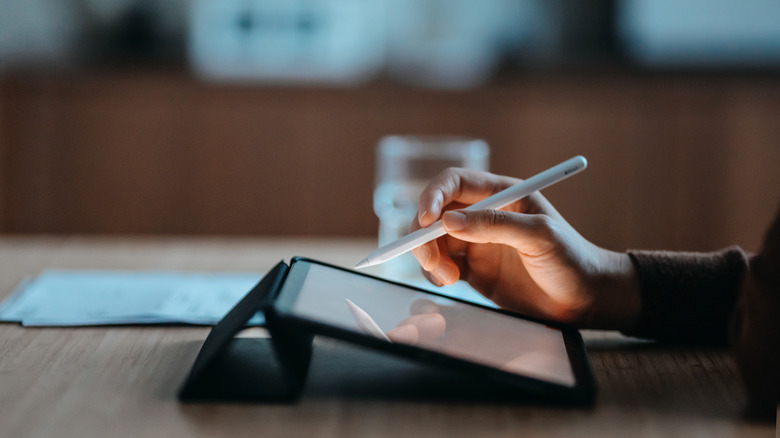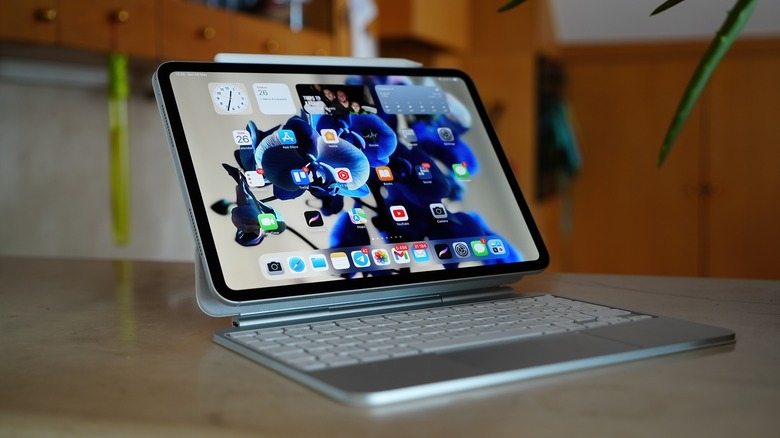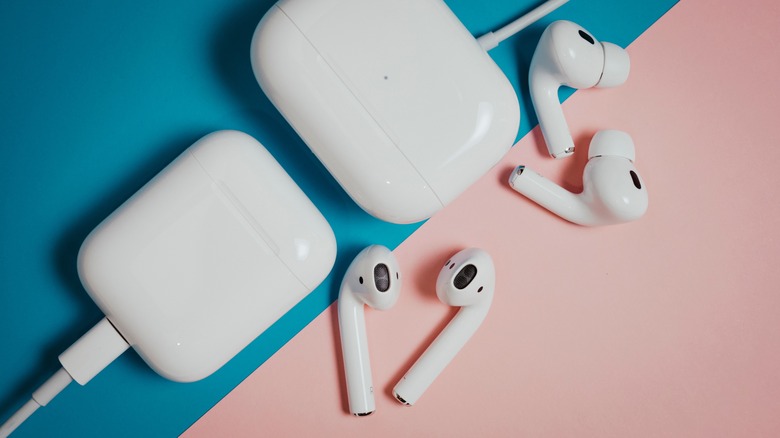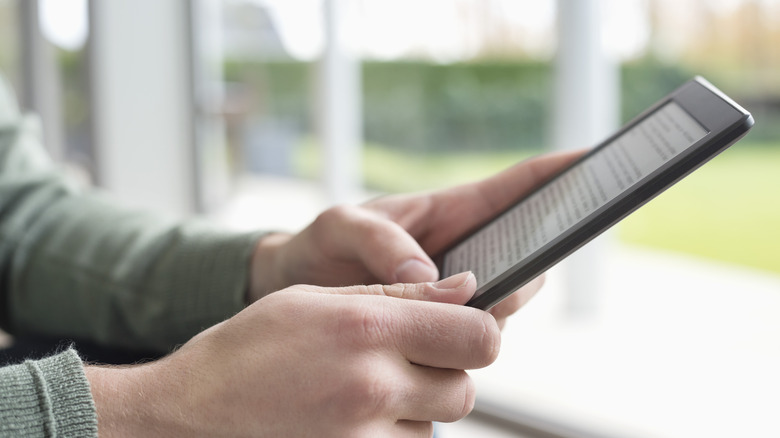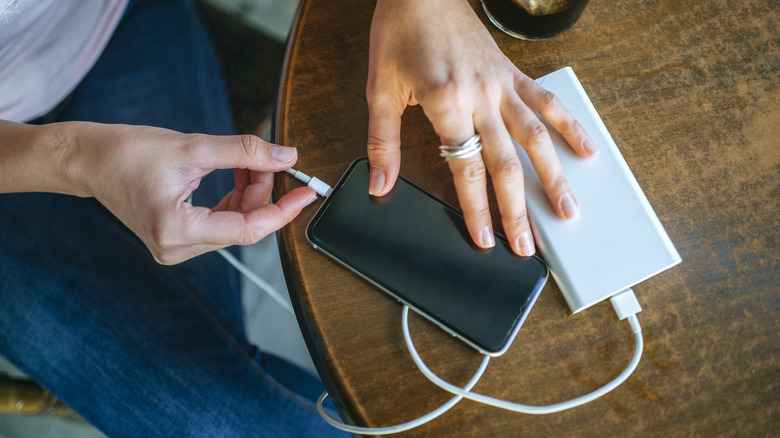6 Tech Gadgets Every Student Needs
Technology offers much more than asking ChatGPT to write an essay for your Political History class or binge-watching YouTube videos while you're cramming for a final the night before. While gadgets have often been looked down upon for generations and labeled as mere distractions, they've proven to be a blessing in disguise for the educational world since the pandemic.
Students are always trying to stick to a budget and keep track of their finances, so saving a bit of money never hurts. With tech giants like Apple launching Back to School promotions that run through the end of September in the United States, there's no better time to invest in a new gadget for high school or college as you gear up for a new academic year.
Whether you're a student tired of carrying a bulky backpack and looking to go paperless, or a parent searching for the perfect high school graduation gift, here are six gadgets that every student will benefit from.
Ditch the notebooks and binders for a tablet
Regardless of whether you're an engineering or medical major, carrying around bulky textbooks, notebooks, and binders is something all students can relate to. According to the National Library of Medicine, the weight of backpacks carried by school students can range from 10% to as high as 25% of their body weight. After all, climbing up a flight of stairs to attend a class on the fifth floor while with a bag full of textbooks is no fun.
This is one of the many reasons why going paperless and getting a tablet, like the iPad Air, is the best decision a student can make. While it is an expensive investment initially, it can help one save a ton of money in the long run. If you think about it, the amount of money you'd spend on textbooks, binders, and stationary throughout your undergraduate degree or your high school years would ultimately cost you even more than you'd initially spend on a tablet.
Instead of carrying dedicated notebooks for each course you take, all you'd need to do is slide your tablet into your backpack. Beyond portability, what's great about going digital is that at the end of your academic journey, all the notes you took and the assignments you completed will all be stored on one single device.
Tablet accessores like a stylus or wireless keyboard
If you're using a tablet specifically for your academics and your program consists of a lot of note-taking and annotation, a tablet alone might not be enough. There's no accessory better than a stylus, like an Apple Pencil for an iPad, if you're looking to use your iPad to its full potential.
Fortunately, most textbooks are available in PDFs online, and with a good note-taking app, like Notability or Goodnotes, handwritten note-taking should be a breeze. If your professors teach through presentations and provide slides or PDFs, you can annotate them directly on your tablet—something you wouldn't be able to do otherwise.
Apple Pencils, in particular, come with great features like handwriting recognition, making studying much easier. Since most institutions use online portals like Google Classroom or Canvas for assignment submissions, you can also directly do assignments on your tablet instead of wasting a ton of paper.
However, if you prefer typing out your notes and are in a program that requires a lot of essay writing, you might be better off purchasing a wireless Bluetooth keyboard. Personally, I've been using an iPad Air 5, the second-gen Apple Pencil, and a Logitech K390 keyboard. I chose to invest in both an Apple Pencil and a wireless keyboard since my program requires extensive note-taking, but I also have many assignments that need to be completed in Microsoft Word.
A reliable laptop
While you can survive your high school or university years without a tablet, it's nearly impossible to do so without a good laptop, especially if you're enrolled in a STEM program. For instance, if you're in a software engineering program, many assignments will require hands-on coding, for which you'll need a reliable laptop capable of running IDEs like VS Code. Similarly, in an architecture program, you'll need to create realistic 3D models for assignments using software like AutoCAD.
Although a tablet paired with a wireless keyboard can nearly replace a laptop in some scenarios, you'll eventually need access to one. With a lightweight and portable laptop, like the M3 MacBook Air, you'd also be able to carry it around with you easily and work during any free slots you have throughout the day. However, if you're on a budget and primarily need a device for note-taking and essay writing, a Chromebook has many features so should be good enough.
Noise-canceling earbuds or headphones to stay focused
Sometimes, the noise of being a student can be overwhelming. Whether it's the constant chatter in a crowded library or your dorm roommate binge-watching yet another TV show, it can be a challenge to find peace to lock in and focus on your studies.
If you're anything like me and need pin-drop silence during an intensive cramming session, investing in noise-cancelling earbuds or headphones is a decision you won't ever find yourself regretting. By blocking out background noise, earbuds with ANC (Active Noise Cancellation) replicate a quiet environment, allowing you to concentrate on your work even in noisy settings like a dorm or a café.
With fewer distractions, you'll eventually notice a boost in your overall productivity. Even if you aren't someone who typically studies in public places like cafés and libraries, a good pair of earbuds come in hand when you're attending online classes or watching lectures online. There are a ton of excellent Bluetooth headphones to consider in 2024, but I opted for the second-gen AirPods Pro, since I'm deep into the Apple ecosystem, and they live up to their claim of excellent battery life.
e-reader for long study hours
Tablets can be a great way to go completely paperless, but they come at a high cost and may not be necessary if you don't take handwritten notes or already have a laptop for all your tasks.
A few programs, like law and social sciences, require a lot of reading. If all you need is a device to view textbooks and papers on, with the ability to highlight text without constant notifications, investing in an e-reader might be a wiser choice.
Most e-readers, like the Amazon Kindle are much cheaper than most tablets you'll find. Since they feature a lightweight and portable design, they're much easier to carry around and hold. A Kindle's battery life is also unmatched—Amazon claims that the 2022 version can last up to six weeks on a single charge. Thanks to its e-ink display, a Kindle is much easier on the eyes, and if you study outdoors, you'll have no trouble reading on a Kindle even under bright sunlight.
Power bank for back-to-back classes
Most students typically spend half of their day at college or university, with a good chunk of their day commuting. Given the fact that every student relies on their devices throughout the day, finding an outlet is a challenge of its own.
Besides, you never know when an unexpected power outage could hit or when you're running low on battery at a critical moment. This is why I've made it a point to always carry a portable power bank with me. It's always better to be safe rather than be sorry.
They're compact, easily slip into your backpack, and are lifesavers when attending long back-to-back classes. Depending on their capacity, most powerbanks can charge your devices multiple times a day, which makes it a great option for students. If you carry multiple devices like a laptop, phone or tablet, it's best to invest in one that supports both USB-C and USB cables.

